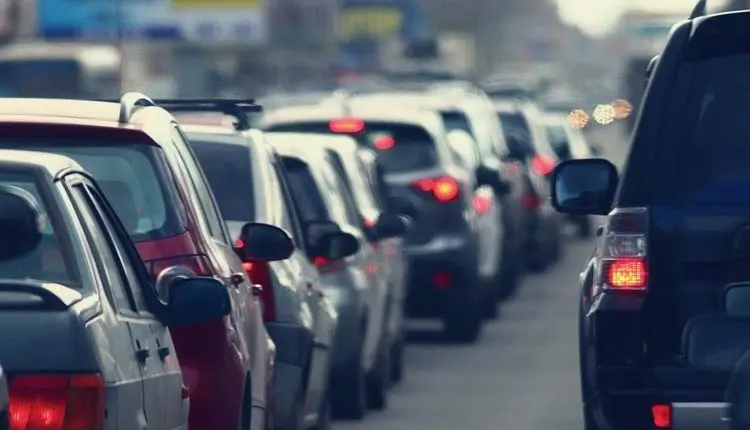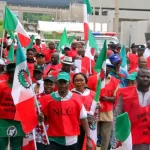As most Nigerians face economic hardship, resulting in little disposable income, the number of uninsured automobiles on Nigerian roads has increased to almost 9 million.
According to data from the Federal Road Safety Corps (FRSC) and the Nigerian Insurers Association (NIA), there are 12 million automobiles on the country’s roads, with just 3.11 million insured as of the end of 2023, meaning that only 25% of vehicles are currently covered.
Furthermore, the number of insured motorists is expected to fall even further by the time this year’s figure (2024) is released.
The population of insured vehicles fell from 3.70 million in 2022 to 3.11 million in 2023, indicating that approximately 600,000 vehicles failed to renew their insurances when their previous coverage expired, owing to the tough operating business environment and rising cost of living, which has caused Nigerians to relegate insurance on their scale of preference.
With the increase in petrol pump prices, combined with the increase in the price of vehicle spare parts, several motorists have either sold or parked their vehicles at home, seeing no reason to insure.
It indicates that some of these 9 million uninsured automobiles display false motor insurance papers, while others do not have any insurance coverage at all, and a few who did have genuine insurance papers previously failed to renew when their previous motor insurance cover expired.
The FRSC Act requires that any vehicle on Nigerian roads carry at least a third-party motor insurance policy or comprehensive insurance coverage of about 10% of the vehicle’s value.
Third-party vehicle insurance is priced at N15,000, an increase from N5,000 last year to account for inflation and rising vehicle spare part prices.
To that end, the insurance industry is losing billions of naira in vehicle insurance due to phony insurance racketeers who simply sell papers to motorists.
According to the investigation, most drivers choose fake insurance because it is less expensive and to avoid the wrath of law enforcement authorities, as they are unaware of the benefits of purchasing authentic insurance coverage. Other uninsured motorists, it was discovered, prefer to bribe law enforcement officers if they encounter them on the road.
While there are concerns that the number of uninsured vehicles will continue to climb if the economic situation does not improve in the immediate term, there are indications that some motorists will not renew their existing policies if they expire owing to the tough economy.
- ATTENTION: Techrectory gives ₦5,000 monthly to our top readers, CLICK HERE to become a winner.
Confirming this development at a recent press briefing in Lagos, NIA chairman Segun Omosehin stated that, in addition to the country’s hardship, the over 300 percent increase in third-party motor insurance certificate premiums from N5,000 to N15,000 was also responsible for a drop in motor insurance last year (2023).
Although he believes that as motorists become more aware of the better benefits of the premium raise, they will begin to appreciate the improvement, he also notes that the economic situation last year was difficult.
According to him, “the macroeconomic environment, whether it is inflation, the withdrawal of fuel subsidies, the high price of gasoline, or foreign exchange concerns, has all had an impact on insurance uptake.
“Insurance impression is crucial to policy acceptance and renewal, and insurance is the most simple present a poor man can give his family. This difficult period is the perfect opportunity to purchase insurance with low premiums and incredibly high values. “The industry should provide more financial education.”
Speaking on the country’s apathy toward insurance, Omosehin emphasized that harsh times necessitate more insurance coverage, particularly due to increases in replacement costs.
He stated that it is more cost-effective to pay a small premium and have the insured assets replaced in the event of a calamity than to dive into one’s resources to replace the damaged assets.
“How much does insurance cost?” Many people spend N5,000 each month on recharge cards to communicate with friends but are unable to spend the same amount to protect their loved ones in the event of an emergency. If you ask me, the greatest time to get insurance is now because it covers your children’s education, health, and everything else that comes with preparing their future,” he stated.
Calling for the correct enabling environment for insurance to prosper, he asked underwriters to conduct a shorter time of review, possibly quarterly, to ensure that reality matches projections.
“The industry needs to work more closely with the government to guarantee that things get done. Security is critical to our business. Political, financial, and agricultural sector stability is crucial. Stability of the structure and system is essential. “Insurers will weather the storm,” he explained.
Yetunde Ilori, the director general of NIA, previously linked the reduction in insurance subscriptions to many macroeconomic policies last year, including currency redesign, subsidy removal, inflation, and low disposable income, among others.
To her, “So, without a doubt, inflation and the high cost of living affected people’s purchasing power and decision to pay for what they needed, including insurance.”
Techrectory with Agency Report.



